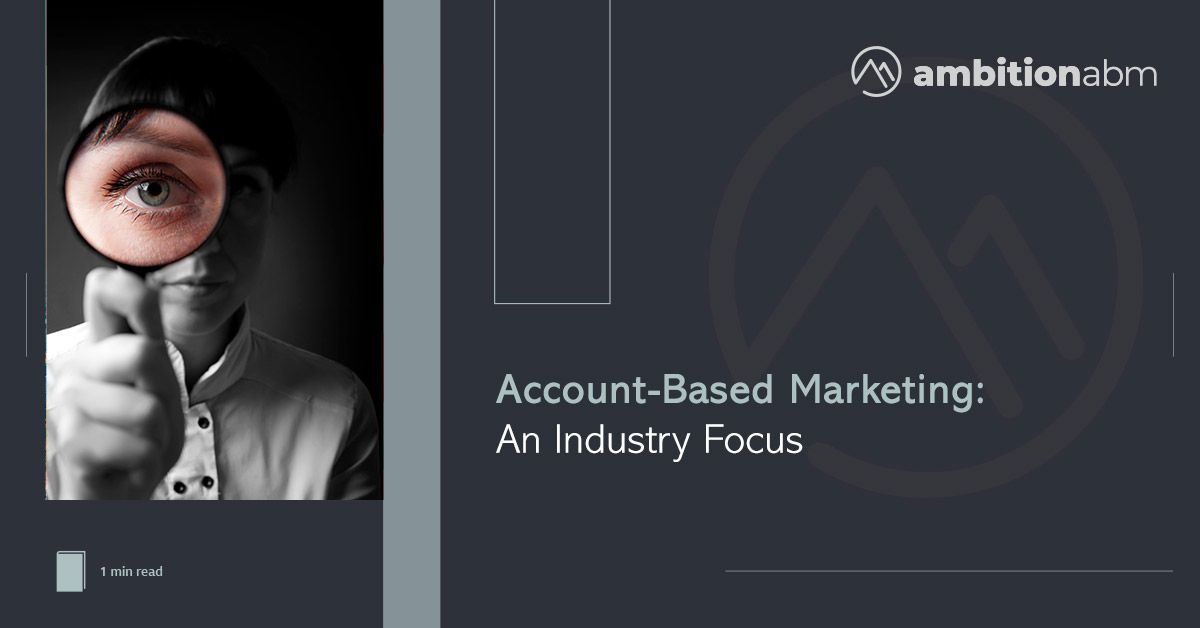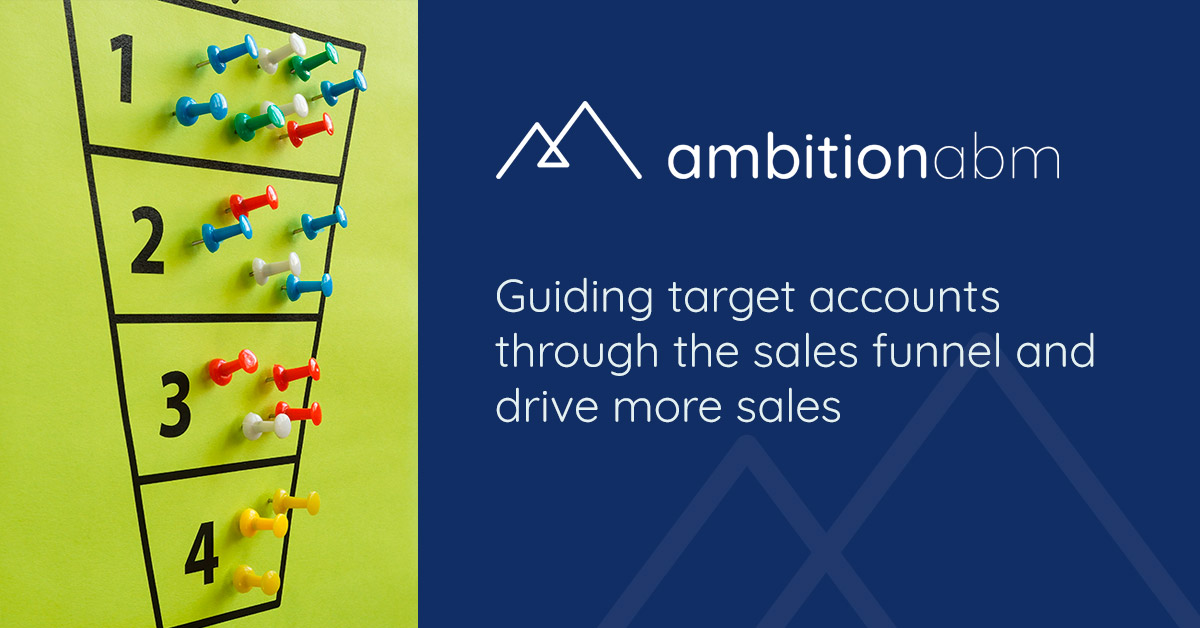As marketers, when you are asked to support an account-based marketing (ABM) approach in a specific industry, firstly you must start by assessing the current situation of your organisation in that industry, and secondly find out what resources are available before you start to build your plan. If your account-based marketing initiative is targeting an industry where your organisation has already deployed a go-to-market approach, the planning challenge is very different from a situation where the account-based effort is trying to penetrate a new vertical market. In this blog, we are going to explore a couple of different approaches to an industry focused planning process for account-based marketers.
An industry strategy in place
If your organisation already has a broad-based industry strategy in place, the following information sources can be used for an ABM initiative:
- Industry Strategy Leads: Industry Strategy Leads are often the authors of industry strategy documents and they possess current strategic planning information, as well as historical context. They can support you in understanding whether your company solutions are specific to the vertical industry or can be easily customised.
- Industry Product Leads: Expert product resources assigned to support the target industry are able to provide both industry and product knowledge, as well as product enhancements and future releases. You will need to consider how these details will impact their ABM plans for targeting industry accounts.
- Industry Analysts & 3rd Party Influencers: Industry analysts can provide objective insights in the state of the industry as well as your competitors, and well-informed industry influencers (bloggers/authors) can also help you with perspectives and industry trends.
- Sales team: The sales team focused on deals within the target industry possess an understanding of the industry pain points.
You also need to understand key aspects of industry context so they should also research for information from these internal and external sources;
- Sales goals: review the reps’ target account plan goals and specific growth objectives and look for common needs where marketing can help. Review sales enablement plans generated by the industry and solution marketing team for additional insights.
- Industry trends: understand key industry trends and how well your organisation is positioned to compete. Identify opportunities by evaluating whether goals within targeted accounts align with industry trends.
- Industry credibility: does the company have existing customers within the targeted industry, and are there reasons to believe with case studies? Assess the current state of those customer accounts within the industry, including their satisfaction levels, and their involvement in customer advocacy activities.
- Marketing support: speak with colleagues to establish what other marketing support is being provided to the broad-based industry strategy and decide on the tactics that may be leveraged for an account-based marketing approach.
No industry strategy in place
If your organisation does not have an existing industry strategy in place, then you as an account-based marketer will face significant challenges not least the lack of industry expertise. If you are in this situation here are some pointers to inform your planning process:
- Product management: your product teams are a great source of insights, providing information on how your company products can meet the needs of buyers in the target industry.
- Sales: very often due to the momentum generated by pursuing recent successes in the industry, sales can help you evaluate customer clusters for sales triggers and common elements and then help with crafting an industry-focused value proposition.
- Services: your professional service teams are able to identify valuable customer success stories for potential advocacy programmes but they can provide insights into how customers are applying your products or solutions to meet relevant industry needs.
- Channel partners: partners may be dedicated to a specific industry, and as such a great source of information. You should look to the channel to leverage partner creditability though co-marketing.
- Solution consultants: though your pre-sales team many not have a detailed understanding of the targeted industry, they do possess deep knowledge about how your company’s offerings solve business problems for its customers.
By accessing the above sources and analysing the resulting insights relevant to the target industry, you can develop a useful approach that includes the following elements;
- Common goals: reviewing sales accounts plans of your list of target accounts (if available) as these are likely to contain at least some common account goals.
- Industry presence: analyse your existing customer base to identify those within the target industry and how your products and solutions solve their specific business issues.
- Data: if you don’t have an industry-based strategy you most probably don’t have any in-house data so using third-party data sources can supplement information derived from sales account plans for targeted accounts.
- Marketing support: without industry-based marketing assets, you can enlist support from the wider marketing team to help you build an asset library. Look for points of leverage across general marketing content with a content audit and adjust marketing materials to meet specific needs of the industry.
If you would like to speak with one of our ABM consultants who are experts in industry focused ABM then please click here and we’ll come right back.
Download our free ABM Guide here











